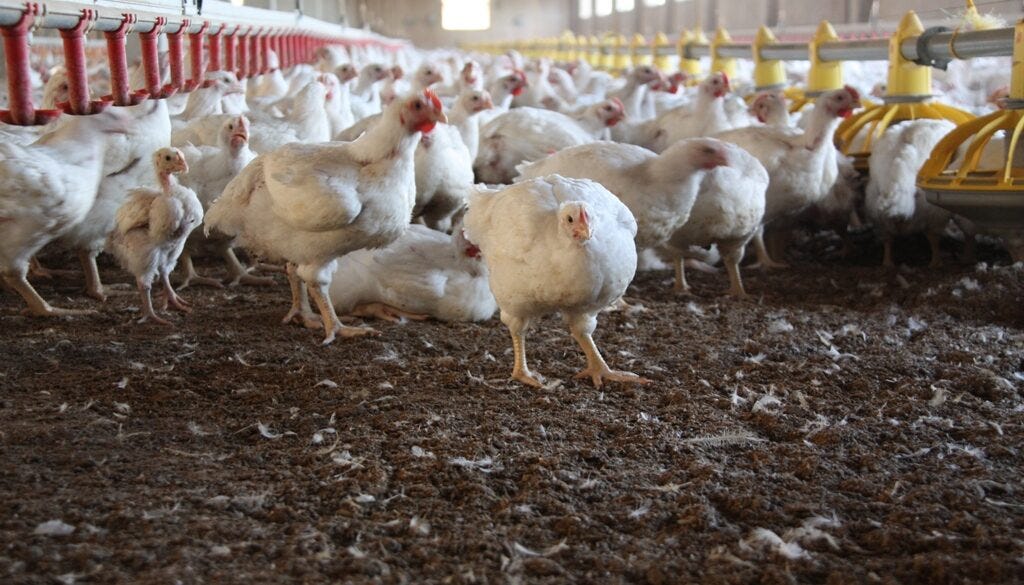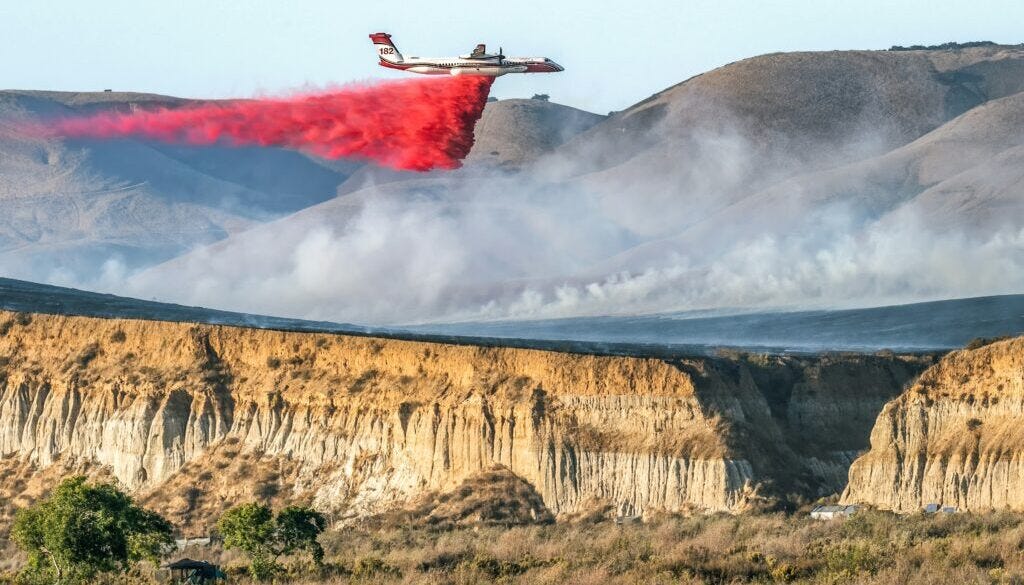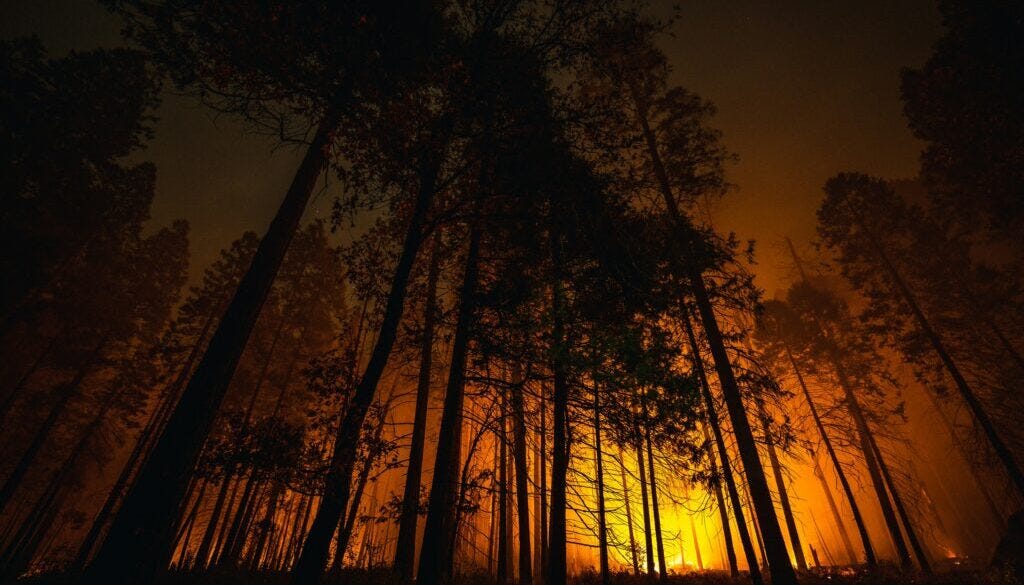Must-read recap: The New Lede's top stories
A proposed factory farm ban; US Congress members call for paraquat ban; soda companies sued for role in plastic pollution crisis; heavy metals and fighting wildfires; more extreme wildfires.
Proposed factory farm ban divides California county
When voters head to the polls on Tuesday to decide the next US president, residents of Sonoma County, California, will be asked to decide another contentious issue – they will be voting on a measure that would make their county the first in the nation to ban factory farms.
Measure J would prohibit farm operations that meet the US Environmental Protection Agency (EPA)’s definition of a concentrated animal feeding operation (CAFO), requiring them to either close or downsize within three years. The measure would also prevent new CAFOs from coming into the county.
Proponents say that CAFOs, where large numbers of animals are crowded together generating massive amounts of manure, are “major polluters” that pose a threat to wildlife and “vital watersheds” and present a “serious risk to public health” by providing a breeding ground for disease and creating other hazards. They cite one Sonoma County poultry operation with more than 500,000 birds as well as “documented criminal animal cruelty” at some CAFOs.
The measure appears to have only a slim chance of passing, facing staunch opposition from powerful farming organizations as well as business groups and even sustainability groups. But backers of the measure say their effort contributes to a groundswell of support for action against CAFOs. (Read the rest of the story.)
US Congress members call on EPA to ban paraquat, citing risk of Parkinson’s and other diseases
More than 50 US lawmakers are calling on the Environmental Protection Agency (EPA) to join dozens of other nations in banning a widely used weed killer linked to Parkinson’s disease and other health dangers.
In an Oct 31 letter to the agency, seven US senators said that paraquat, a weed killer commonly applied on US farms, was a “highly toxic pesticide whose continued use cannot be justified given its harms to farmworkers and rural communities.” The call for a ban from the senators came after 47 members of the US House of Representatives sent a similar letter to the EPA calling for a ban earlier in October.
The lawmakers cite scientific links between paraquat use and development of Parkinson’s and other “life threatening diseases” as well as “grave impacts on the environment”. The lawmakers note that approximately 70 countries have banned paraquat.
“Numerous studies” have found that paraquat causes “serious health risks for workers who use the substance as well as the surrounding communities,” the lawmakers wrote. “These health risks include a higher risk of Parkinson’s disease, with some studies finding a 64% increase in the likelihood of developing Parkinson’s, non-Hodgkin’s Lymphoma, thyroid cancer, and other thyroid issues.” (Read the rest of the story.)
LA County accuses Pepsi and Coca-Cola of lying to consumers, worsening plastic pollution
Los Angeles this week sued PepsiCo and Coca-Cola for allegedly deceiving consumers and playing a “significant role” in a plastic pollution crisis that harms wildlife and poses a risk to human health.
The lawsuit, filed Oct. 30 in Los Angeles Superior Court, claims that the two global beverage and food companies are the “top plastic polluters in the world” and have engaged in a disinformation campaign designed to make consumers falsely believe that purchasing their products in single-use plastic bottles is an “environmentally responsible choice.”
“Coke and Pepsi need to stop the deception and take responsibility for the plastic pollution problems [their] products are causing,” Los Angeles County Board Chair Lindsey Horvath said in a statement.
Neither PepsiCo nor Coca-Cola replied directly to requests for comment.
However, William Dermody, a spokesperson for American Beverage, which represents the non-alcoholic beverage industry in the US, said in a statement that “the allegation that our packaging is not and will not be recycled is simply not true.” Dermody said “our bottles are designed to be recycled and remade and can include up to 100% recycled plastic.” (Read the rest of the story.)
High levels of hazardous heavy metals found in products used to fight wildfires
A new study shows that sprays and retardants used to fight wildfires contain surprisingly high levels of toxic heavy metals, a “disturbing” finding at a time when wildfires are generally getting worse.
The paper, published Oct. 30 in the journal Environmental Science & Technology Letters, found that each of 14 fire suppression products examined contained at least eight of the ten heavy metals tested for, including chromium, cadmium, lead, and arsenic. Most of these metals or their derivatives are highly toxic, and known to cause a long list of diseases, including cancer.
All have been approved for use by the US Forest Service, which did not respond to a request for comment.
The findings raise questions about the ecological and human health impact of spraying large quantities of these materials over huge tracts of land in the western United States, according to study lead author Daniel McCurry, an environmental chemist at the University of Southern California. (Read the rest of the story.)
Postcard from California: Climate change is fueling faster-spreading, more extreme wildfires
Bill Walker has more than 40 years of experience as a journalist and environmental advocate. He lives in California’s San Joaquin Valley.
(Opinion columns published in The New Lede represent the views of the individual(s) authoring the columns and not necessarily the perspectives of TNL editors.)
This summer, the Park Fire burned more than 425,000 acres near Chico, Calif. – the fourth-largest wildfire in the state’s history. It started when an arsonist pushed a flaming car into a grassy, brush-strewn gully, sparking California’s largest-ever deliberately set wildfire. But what set the Park Fire apart from the 7,194 wildfires that have burned more than 1 million acres in California this year was how fast it grew.
As it burned, Zeke Lunder, director of Deer Creek Resources, a wildfire management consulting firm in Chico, told The Washington Post that in 25 years of mapping large fires throughout the Western US, he couldn’t recall another blaze that spread so far so fast. He said the Park Fire “was moving in ways we aren’t used to seeing.”
It’s settled science that the climate crisis is increasing the number and frequency of wildfires. A 2016 study estimated that from 1984 to 2015, human-caused climate change contributed to the burning of almost twice the acreage in 11 Western states than might have burned in its absence.
Now, new research confirms that Western wildfires are also spreading faster. (Read the rest of the opinion column.)





